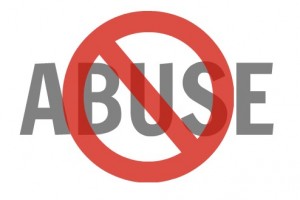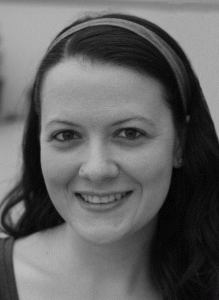Editor and Founder Vrinda Pendred discusses when we should show patience and understanding – and when enough is enough.
Friends and long-time readers will know I’m an advocate of learning and understanding, when it comes to neurological conditions. Those closer to me will also know my strong anti-abuse stance, and I’d like to take a moment to explain how I think this fits in with having patience and an open mind.
I grew up with an abusive father. He was very violent toward my mother, both in word and deed, and when I was ‘old enough’ he edged dangerously close to moving on to me. When I became a mother myself, I took the view that he wasn’t going to change, no matter how much I tried to help him, and I couldn’t have the poison in my son’s life. It has now been five years since I last spoke to my father.
My father has the sort of old-school pride that won’t allow him to see a psychologist, so he’s never been diagnosed with anything. But I’d put money on him being autistic, with OCD and borderline personality disorder. My own diagnoses and experience leave me wishing there were something I could do for him. ‘He almost can’t help it,’ I used to tell myself. ‘He finds emotions challenging. Be patient; he’s lost inside himself. You can see how unhappy he really is. He regrets the past, deep down, but is too scared to face up to all he’s done. He was abandoned and abused by his own parents. He just needs someone to love him unconditionally, like his parents never did.’ And so on.
I still think all of that’s true – except for one thing: he can help it. How? By seeing a doctor.
It sounds trite, but you can’t help someone who isn’t willing to help themselves. I recall a time when I was talking about my OCD and my father asked, ‘Where did all this come from?’
‘It’s genetic,’ I told him. ‘I got it from you and Mum.’
‘What are you talking about? You didn’t get it from me.’
I was incredulous. ‘Are you kidding? When I was growing up, you would sit down for breakfast, notice a fingerprint on the glass coffee table in the next room, and have to clean ALL THE GLASS IN THE HOUSE before you would eat with us.’
‘I – ‘
‘AND,’ I interrupted, ‘every time you came home from work, the first thing you’d do was go around the house fixing things. My best friend and I once deliberately ruffled the curtain a little, left a cupboard door open an inch, that sort of thing. You noticed everything within a minute. We timed you.’
‘Vrinda – ‘
‘And what about the time when I was nine years old and was so excited that my friend had loaned me her roller skates, I wore them all over the house. When I say on the sofa, I rested my feet on the coffee table and the wheels of the skates made the tiniest little scratch on the wood of the table. You went nuts. You screamed at me in my face and said we’d have to sell the TV to pay for a new coffee table. I was so scared. In the end, you found wood filler and fixed the scratch, but I never wore roller skates again. I was terrified.’
Even after listening to all this, my father grew stern and said firmly, ‘Vrinda, I do NOT have OCD.’
I tried a different tactic. ‘Do you realise that as I’m a girl, in order for me to have Tourette’s Syndrome, I have to have inherited the genes from BOTH of my parents?’ Silence. ‘That means you HAVE to have SOMETHING. Feel free to look it up in clinical psychiatry books.’
When he didn’t respond, I asked, ‘Why are you so afraid of admitting it, anyway? Do you have any idea how that makes me feel? It means that despite all your usually supportive words about my medical problems, you secretly feel these things are something to be ashamed of.’
He had no response for that – but he didn’t deny feeling that way, either, and he never saw a doctor, not for the OCD and certainly not for the more dangerous problems he suffers from that made my childhood a living nightmare. Naturally, this meant he never changed – so I changed. I stopped putting up with it and walked away.
I’ve had to walk away from a number of people, over the years, out of self-preservation. The number of birthday cards I get has diminished, but I’m much happier for it.
We can’t allow ourselves to get dragged down with people who are willing to let themselves fall apart. This was one of the main themes of my novel The Ladder. Something I think my father will never understand is that I still love him; I always will. And I pity him, because he is ultimately a prisoner of his own ego. But that doesn’t mean I have to keep him in my life, if his presence is destructive to me and my family.
It’s important to remember that no matter how much you love someone, you are not their therapist. If you are being mistreated, get out. It doesn’t matter if the abuser ‘can’t help it’. Point them in the direction of therapy and distance yourself until they’re better – if that ever happens. We should all try to exercise understanding for these people who may be in our lives, but we can understand and pity from a distance. Patience should be reserved for those who are really trying, and who really are getting better all the time – for those who want to get better.
I hope you all have (or can find your way to having) the healthy relationships you deserve. And if you found this article helpful, be sure to subscribe to our blog for more insights, as well as personal stories from our readers.
Vrinda Pendred is the Editor and Founder of Conditional Publications. Additionally, she does freelance editing and proofreading and provides private English tuition. She is also a writer, and you can learn more about her personal work here.
Vrinda has been diagnosed with Tourette’s Syndrome, Obsessive-Compulsive Disorder, ADHD, Autism and Bipolar Disorder. Her ambition is to help others with such conditions find their voice through creative writing, and spread awareness to the general public.
Be sure to read her contributions to Conditional Publications’ debut release Check Mates: A Collection of Fiction, Poetry and Artwork about Obsessive-Compulsive Disorder, by People with OCD.











Jen Scinto says:
So very true! It is hard to distance yourself from people you love that abuse and make you feel worse, but it is also critical for your own mental health. I love this!